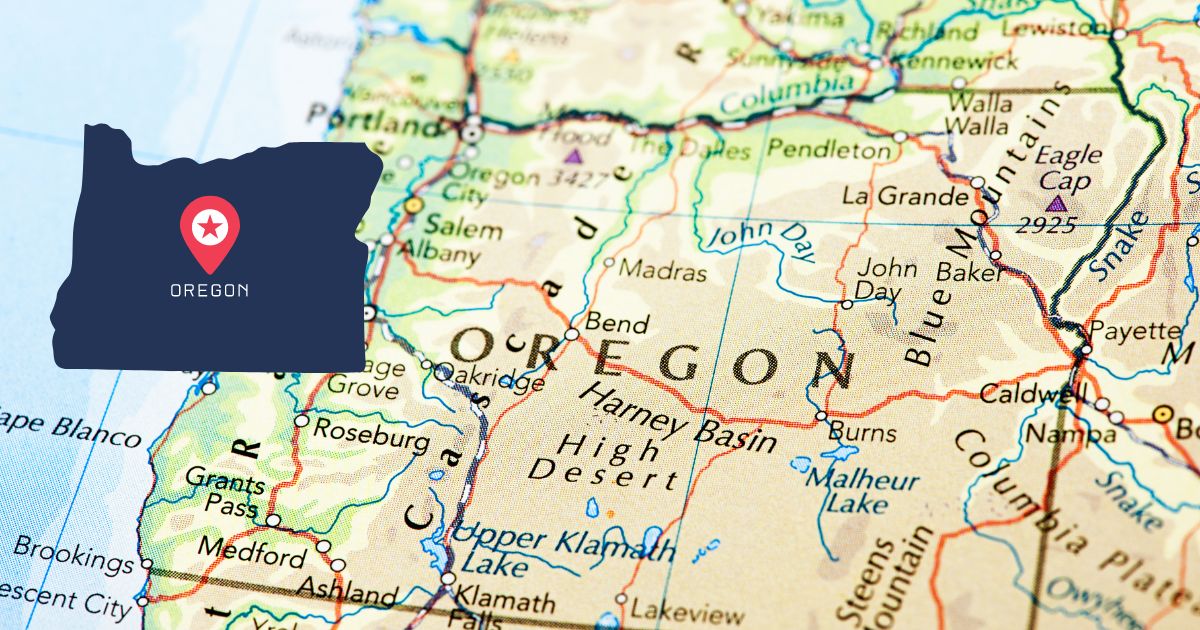
Oregon, located in the Pacific Northwest region of the United States, is a state rich in natural beauty, diverse landscapes, and vibrant culture. From its rugged coastline to its towering forests, Oregon offers a plethora of attractions and experiences for residents and visitors alike. In this comprehensive guide, we’ll delve into the wonders of Oregon, exploring its geography, history, culture, economy, and more.
Geography and Climate
Oregon’s geography is as varied as it is stunning. From the rugged coastline of the Pacific Ocean to the Cascade Range and the high desert of the east, Oregon encompasses diverse landscapes within its borders.
Coastal Region:
Oregon’s coastline stretches over 360 miles along the Pacific Ocean, characterized by dramatic cliffs, sandy beaches, and iconic landmarks like Haystack Rock at Cannon Beach and the sea stacks of Bandon.
Cascade Range:
Running through the center of the state, the Cascade Range is home to snow-capped peaks, including Oregon’s highest point, Mount Hood. This region is renowned for its outdoor recreation opportunities, from skiing and snowboarding to hiking and camping.
Willamette Valley:
The Willamette Valley, sandwiched between the Cascades and the Coast Range, is Oregon’s most populous region and an agricultural hub known for its vineyards, farms, and orchards.
Eastern Oregon:
Comprising vast high desert landscapes, Eastern Oregon offers a stark contrast to the western part of the state. It’s characterized by wide-open spaces, deep river canyons, and the stunning beauty of places like the Painted Hills and the Wallowa Mountains.
Oregon’s climate varies greatly depending on the region. The western part of the state experiences a mild, oceanic climate, while the eastern part tends to be drier with colder winters and hotter summers.
History and Settlement
Indigenous Peoples: Before European settlers arrived, Oregon was home to various indigenous tribes, including the Chinook, Nez Perce, Kalapuya, and others. These tribes had rich cultures and deep connections to the land.
Exploration and Settlement:
Oregon’s history is intertwined with the westward expansion of the United States. In the early 19th century, explorers like Lewis and Clark ventured through the region, followed by fur traders and missionaries. The Oregon Trail, a historic wagon route, played a significant role in the settlement of the region, with pioneers seeking fertile land and new opportunities.
Statehood and Development:
Oregon became the 33rd state of the Union in 1859. The state’s economy boomed with the discovery of gold, logging, and the establishment of agriculture. Portland, the largest city in Oregon, emerged as a major port and industrial center.
Find out more about Oregon Probate Bonds here and our License & Permit Bonds in Oregon.
Here is our page on Oregon Performance Bonds and our page on Bid Bonds in Oregon.
Culture and Lifestyle
Outdoor Recreation:
Oregonians have a deep appreciation for the outdoors. Hiking, camping, fishing, and skiing are popular activities year-round. The state is home to numerous state parks, national forests, and wilderness areas, providing ample opportunities for outdoor enthusiasts.
Cuisine and Culinary Scene:
Oregon’s culinary scene is diverse and vibrant, with a focus on fresh, locally sourced ingredients. Portland, in particular, is renowned for its food carts, microbreweries, and farm-to-table restaurants. The state’s Willamette Valley is celebrated for its wines, particularly Pinot Noir.
Arts and Entertainment:
Oregon boasts a thriving arts and cultural scene. Portland is home to numerous theaters, museums, galleries, and music venues. The Oregon Shakespeare Festival in Ashland is a renowned annual event, attracting theater enthusiasts from around the world.
Economy and Industry
Technology and Innovation:
Oregon is home to several high-tech companies, including Intel, which has a large presence in the state. The Silicon Forest, as it’s sometimes called, is a hub for technology and innovation, particularly in the Portland metropolitan area.
Agriculture and Forestry:
Agriculture remains a vital part of Oregon’s economy. The state is a leading producer of lumber, wheat, dairy products, and fruits such as cherries and berries. Forestry is also a significant industry, with sustainable timber harvesting practices in place.
Tourism:
Tourism plays a crucial role in Oregon’s economy, driven by its natural beauty and outdoor recreation opportunities. Visitors flock to the Oregon Coast, the Columbia River Gorge, Crater Lake National Park, and numerous other attractions throughout the state.
Notable Attractions
Crater Lake National Park: Formed by the collapse of Mount Mazama, Crater Lake is the deepest lake in the United States and one of Oregon’s most iconic natural wonders. Visitors can admire the lake’s stunning blue waters, go hiking, or enjoy scenic drives around the rim.
Columbia River Gorge:
The Columbia River Gorge offers breathtaking vistas, waterfalls, and numerous recreational activities such as hiking, windsurfing, and kiteboarding. The Historic Columbia River Highway provides access to many scenic viewpoints and attractions.
Oregon Shakespeare Festival:
Located in Ashland, the Oregon Shakespeare Festival is one of the oldest and largest regional theaters in the United States. It attracts theater lovers with its diverse productions, including works by Shakespeare and contemporary playwrights.
Portland’s International Rose Test Garden:
Located in Portland’s Washington Park, this garden is home to thousands of rose bushes, making it a fragrant and colorful attraction. It offers stunning views of the city skyline and Mount Hood.
Conclusion
Oregon’s allure lies in its stunning natural landscapes, rich cultural heritage, and vibrant communities. Whether you’re exploring the rugged coastline, hiking in the Cascade Mountains, or enjoying the vibrant city life of Portland, Oregon offers something for everyone. With its commitment to sustainability, innovation, and quality of life, Oregon continues to captivate the hearts of residents and visitors alike, earning its reputation as the Beaver State.
